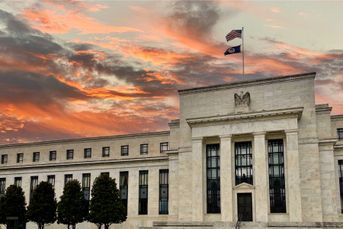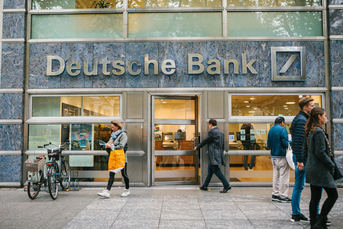Earnings wrap: BoA earnings exceed expectations

The wealth management division's a ray of light for Morgan Stanley.
Bank of America Corp.’s second-quarter profit soared after its core Wall Street businesses exceeded analysts’ expectations.
The firm’s fixed-income and equity traders delivered a surprise gain, covering a slight miss in expected net interest income. Revenue from fixed-income, currencies and commodities trading rose 18% to $2.8 billion in the second quarter, as clients reacted to changing interest rates, the bank said. That helped BofA top analysts’ earnings-per-share estimates.
“All businesses performed well, and we saw improved market shares, particularly in our sales and trading and investment banking businesses,” Chief Executive Brian Moynihan said in a statement Tuesday.
The results offer another look at how Wall Street fared through a tumultuous a period that included upheaval among regional lenders capped by the failure of First Republic Bank. Last week, JPMorgan Chase & Co. and Citigroup Inc. both posted trading results that beat analysts’ expectations. They also beat estimates for net interest income, and raised their forecasts for the remainder of the year.
At Bank of America, net interest income — the revenue collected from loan payments minus what depositors are paid — came in at $14.16 billion, slightly below analysts’ estimates. For the full year, NII is likely to total just above $57 billion, up more than 8% from 2022, chief financial officer Alastair Borthwick said on a conference call with analysts, reiterating a previous forecast.
WEALTH MANAGEMENT CUSHIONS BLOW FOR MORGAN STANLEY
Morgan Stanley’s Wall Street operations sputtered as a slowdown in trading and investment banking put a dent in second-quarter earnings.
Revenue from the trading unit slid 22% from a year earlier and that, combined with a dealmaking slump, led to results that were weaker than analysts predicted. Record net revenue from wealth management helped cushion the blow.
The New York-based firm also racked up $308 million in severance costs tied to the more than 3,000 jobs it eliminated earlier this year to cope with the industry’s dealmaking drought. Profit fell 13% to $2.18 billion.
Chief financial officer Sharon Yeshaya was reluctant to call a bottom for investment banking, but pointed to an improving tone during the second quarter in sounding an optimistic note for the rest of the year.
“It feels as though things are getting better and the signs are encouraging,” Yeshaya said in an interview. The backlog is building and “it sets us up for a better 2024.”
Morgan Stanley outlined a plan earlier this year to almost double profit from its wealth-management juggernaut in coming years. The bank’s new long-term goal of more than $12 billion in pretax earnings will come from a mix of asset growth, more lending and expanding markets. The unit, which has benefited from higher net interest income this year as a result of rising rates, reported revenue of $6.66 billion, up 16% from a year earlier.
The bank reported about $100 billion in inflows, with roughly $90 billion in its wealth unit that kept it on track for its ambitious target of sopping up $1 trillion in new assets every three years.
SCHWAB SHARES RISE DESPITE DEPOSITS DROP
Charles Schwab Corp.’s bank deposits fell 7% in the second quarter from the prior period as the firm responded to the worst U.S. banking crisis since 2008, but executives said they expect to see growth again by year-end.
Schwab shares rose 11.8% at 9:32 a.m. in New York.
Customer deposits dropped to $304.4 billion as of June 30, the Westlake, Texas-based brokerage said Tuesday in a statement. That beat the average estimate of $298.4 billion from analysts surveyed by Bloomberg.
Deposits were also down 31% from a year earlier. The firm’s outflows are decelerating, as they fell 11% in the first quarter from year-end.
The firm also reduced its borrowings from the Federal Home Loan Bank system by 10% since the prior quarter.
“While anticipated client cash realignment, along with net equity buying during June, pushed cash levels lower, we observed a continued and substantial deceleration in the daily pace of cash outflows versus prior months,” chief financial officer Peter Crawford said in the statement. “The continuation of this trend through the end of the quarter further strengthens our conviction that this realignment activity will inflect before the end of 2023, unlocking growth in client cash held on the balance sheet.”
Schwab has been facing pressure from investors, particularly since March when the collapse of several midsize U.S. lenders focused attention on unrealized losses from securities held on bank balance sheets. The company operates both a brokerage and one of the country’s largest banks.
The Federal Reserve’s interest rate hikes over the past year have pressured the banking arm, a pivotal source of revenue for the company. Higher rates encouraged some Schwab clients to move their money from the bank to other investment products, including money-market funds, in a process known as “cash sorting.”
“While recent results have been negatively influenced by a number of temporary factors, we remain extremely well-positioned heading into the years to come,” Crawford added.
Schwab shares have declined 30% this year through Monday compared with a 1% gain in the S&P 500 Financials Index.
Adjusted earnings per share were 75 cents, four cents more than the average estimate of analysts in a Bloomberg survey. Revenue totaled $4.7 billion, compared with Wall Street’s $4.6 billion estimate. The firm gathered $52 billion in core net new assets during the quarter, bringing year-to-date asset gathering to more than $180 billion.
How advisors can tap into hot ETF trends to build client portfolios
Learn more about reprints and licensing for this article.








